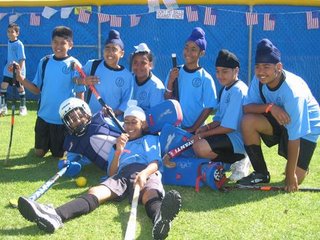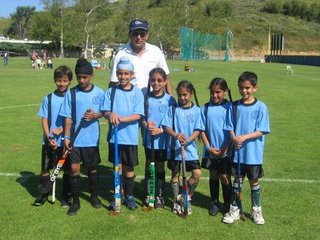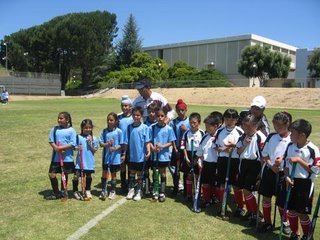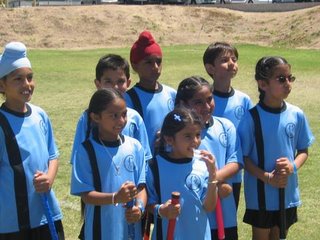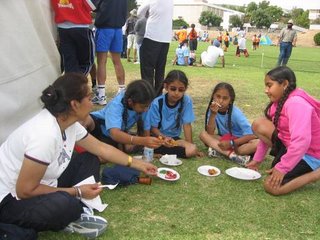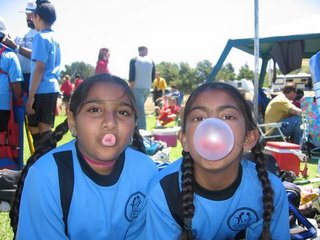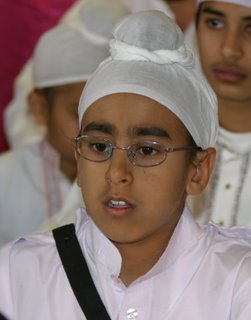Why is there need to speak Mother Tongue – Punjabi?
Punjabi is also called Maan-boli (Mother-Tongue) as a child hears & hence learns ‘language’ through his/her mother. Many Sikh parents living abroad; do not stress on ‘speaking’ Punjabi though ‘reading’ and ‘writing’ is taught through Punjabi Schools; where countless sewadars (mostly mothers) do sewa on Sundays; when Gurdwara Diwaan is held. Numbers of on-line resources are available too, my favorite one is designed by Punjabi University, Patiala, Punjab
It is very clear that why we need to ‘learn to read in Gurmukhi’ as our holy scripture Sri Guru Granth Sahib ji is written in Gurmukhi. Our Guru speaks to us in Gurmukhi. How can we communicate with our Guru Maharaj if we do not understand His language? Guru Sahib speaks to us through Gurbani written in Sri Guru Granth Sahib ji. Gurbani is instruction manual of life for a Sikh. It is his/her treasure. A Sikh will be crippled without getting to this ‘treasure’ first hand and missing out on the ‘real essence’ of Gurbani. English translations do not do justice to what Gurbani wants to convey. It is diluted message every time someone tries to translate in English or any other language. ‘Writing’ helps in learning ‘reading’ of any language; so that is also part of curriculum.
But, why do we need to speak ‘Punjabi’ while we live in a society where English is main language? I would like to share my thoughts on it with you.
Jews are hardly 14-15 million but they have their own language ‘Hebrew’ and their independent country ‘Isreal’; just because they agreed on one thing that this kaum can live an honorable life only if a jew is better than others in every part of their faith. So they decided that each boy and girl of age 12, must spend two hours of his/her time on doing three things – read Jew Holy Granth(Torah), Read Jew History and learn jew’s mother tongue. I think we can learn a lot from Jew friends.
Even though answer to this question is quite personal for each Sikh family; still there are some similarities where we can see the ‘need’ to ‘speak’ Punjabi. Let us begin from ‘Names of the relations’; when we talk to our children; we tell them “beta tere masi-masar ji aaye si”, “tere bhua-phuphar ji da phone aayia see”, ‘tuhade Dada-Dada ji ne eh tohfa bhejiya hai”, “Tuhade Nana-Nani ji garmiyaan vich aange”….but if we say all this in English, every one will be Uncle-Aunti and both set of parents will be grand-parents. Why would we want to loose such a beautiful language that honors each relation in a most special manner?
Something that I realized this last weekend only; the Chinese Teams playing Field Hockey were ‘cheered’ in their own language; we did not have a slightest idea of what they were saying to figure out the ‘intent’ of the players; against whom our Punjabi children were playing. When we bagan to cheer in Punjabi, we were surprised to hear that many players did not know ‘punjabi’ not because they were Gujrati but they did not speak Punjabi at home. We have decided to make a ‘cheat-sheet’ of cheering Punjabi language and teach each and every player our language.
Punjabi has 13th place in the world’s languages. Most countries provide with ‘interpreters/ translators’ for those who can’t read their country’s language. Grants are provided to various ethnic groups/communities for the development of their respective languages; then why should we not feel proud to learn our mother tongue ‘Punjabi’?
Here are some tips that worked for us to get our children in ‘Punjabi-speaking’ mode:
1. If you have only one child, just speak Punjabi at home, it will work even after child begins school.
2. If more than one children, they will probably tend to speak English with each other once they are in school and that becomes their primary language and you have no control on that. During all that Punjabi slowly diminishes. Be persistent to speak Punjabi yourself and encourage them to answer you back in Punjabi. Polite reminders/awards work almost always.
3. Have them read 'Saakhies' in Punjabi on regular basis or read to them if they are under 5.
4. Have your children learn to read/write Punjabi too at the same pace as they are learning other languages at school.
5. If you had missed the boat already & your child has forgotten what he/she learnt while still at home, don't be alarmed. He/she still absorbed the Punjabi vocabulary from your conversations. Set goals and awards to have him/her started on Punjabi again.
6. Vacations and visits with Punjabi speaking friends and relatives in India help a whole lot.
7. Watch together Alpha ETC Punjabi channel, ask them what they understood & explain if they did not. This is the fastest method of creating Punjabi atmosphere (caution: keep your remote handy to switch the channel when inappropriate stuff pops up)
Good Luck!
It is very clear that why we need to ‘learn to read in Gurmukhi’ as our holy scripture Sri Guru Granth Sahib ji is written in Gurmukhi. Our Guru speaks to us in Gurmukhi. How can we communicate with our Guru Maharaj if we do not understand His language? Guru Sahib speaks to us through Gurbani written in Sri Guru Granth Sahib ji. Gurbani is instruction manual of life for a Sikh. It is his/her treasure. A Sikh will be crippled without getting to this ‘treasure’ first hand and missing out on the ‘real essence’ of Gurbani. English translations do not do justice to what Gurbani wants to convey. It is diluted message every time someone tries to translate in English or any other language. ‘Writing’ helps in learning ‘reading’ of any language; so that is also part of curriculum.
But, why do we need to speak ‘Punjabi’ while we live in a society where English is main language? I would like to share my thoughts on it with you.
Jews are hardly 14-15 million but they have their own language ‘Hebrew’ and their independent country ‘Isreal’; just because they agreed on one thing that this kaum can live an honorable life only if a jew is better than others in every part of their faith. So they decided that each boy and girl of age 12, must spend two hours of his/her time on doing three things – read Jew Holy Granth(Torah), Read Jew History and learn jew’s mother tongue. I think we can learn a lot from Jew friends.
Even though answer to this question is quite personal for each Sikh family; still there are some similarities where we can see the ‘need’ to ‘speak’ Punjabi. Let us begin from ‘Names of the relations’; when we talk to our children; we tell them “beta tere masi-masar ji aaye si”, “tere bhua-phuphar ji da phone aayia see”, ‘tuhade Dada-Dada ji ne eh tohfa bhejiya hai”, “Tuhade Nana-Nani ji garmiyaan vich aange”….but if we say all this in English, every one will be Uncle-Aunti and both set of parents will be grand-parents. Why would we want to loose such a beautiful language that honors each relation in a most special manner?
Something that I realized this last weekend only; the Chinese Teams playing Field Hockey were ‘cheered’ in their own language; we did not have a slightest idea of what they were saying to figure out the ‘intent’ of the players; against whom our Punjabi children were playing. When we bagan to cheer in Punjabi, we were surprised to hear that many players did not know ‘punjabi’ not because they were Gujrati but they did not speak Punjabi at home. We have decided to make a ‘cheat-sheet’ of cheering Punjabi language and teach each and every player our language.
Punjabi has 13th place in the world’s languages. Most countries provide with ‘interpreters/ translators’ for those who can’t read their country’s language. Grants are provided to various ethnic groups/communities for the development of their respective languages; then why should we not feel proud to learn our mother tongue ‘Punjabi’?
Here are some tips that worked for us to get our children in ‘Punjabi-speaking’ mode:
1. If you have only one child, just speak Punjabi at home, it will work even after child begins school.
2. If more than one children, they will probably tend to speak English with each other once they are in school and that becomes their primary language and you have no control on that. During all that Punjabi slowly diminishes. Be persistent to speak Punjabi yourself and encourage them to answer you back in Punjabi. Polite reminders/awards work almost always.
3. Have them read 'Saakhies' in Punjabi on regular basis or read to them if they are under 5.
4. Have your children learn to read/write Punjabi too at the same pace as they are learning other languages at school.
5. If you had missed the boat already & your child has forgotten what he/she learnt while still at home, don't be alarmed. He/she still absorbed the Punjabi vocabulary from your conversations. Set goals and awards to have him/her started on Punjabi again.
6. Vacations and visits with Punjabi speaking friends and relatives in India help a whole lot.
7. Watch together Alpha ETC Punjabi channel, ask them what they understood & explain if they did not. This is the fastest method of creating Punjabi atmosphere (caution: keep your remote handy to switch the channel when inappropriate stuff pops up)
Good Luck!
